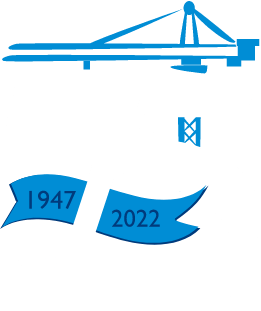Being an Equipment Operator
Being an equipment operator is a very exciting job – you get to drive and operate cool equipment, move extremely large heavy items, or rip into the ground as no shovel has ever done. It is a fun job, but not one you master in a day. Equipment operators are not required to have a college degree, but they do have to demonstrate the skills to handle large machinery that can be dangerous in inexperienced hands.
If you have never operated a truck, excavator, loader, or other large machinery, then you will have to undergo on-the-job training taught by professionals. Another option is to attend vocational school to get training for each piece of equipment. Either option is a great way to start a career in equipment operation.
Growing up on a farm gave me plenty of opportunities to learn equipment operation starting at just 12 years of age. It was a daily requirement, including plowing, planting, and hauling food and water to the many farm animals. There is nothing like pulling a 40’ – 60’ wide disc plow through the ground and looking back to see the earth change from beige to black as the ground turns over. There is also immense satisfaction in transporting thousands of animals from one house to another with a 40’ trailer or delivering cows and hogs to market every week. I also learned an excellent work ethic and how important it is to arrive on time. When animals depend on you to survive, late can be bad, but not showing up at all can be the difference between life and death.
After moving to the city, I started in bridge construction as a carpenter. The company needed a backhoe operator, and I offered to fill in until they hired someone. They never did, and I moved from one piece of equipment to the next. From dozers, loaders, and excavators, to motor graders and pans, if it had a motor, I was on it. When our mobile crane operator quit, I learned the hydraulic crane and then the friction crane. Learning the friction crane is what allowed me to gain employment at Miller & Long on the Carolina Panthers Stadium project in Charlotte, North Carolina.
We had six large crawler cranes in the interior of the stadium, all friction rigs. Six months into the job, I was asked if I would take over as an operator for erecting tower cranes. For the first 10 years, we put up cranes all over the Washington, D.C., area. Sometimes we would do four or five cranes up or down in a week. Now, factor in 7-8 loads of 200 tons of booming sections, plus 14-16 truckloads of tower crane, to be shipped out at the end of erection or be dismantled. We used to do this in a day; however, as times have changed, so have the speeds at which we can do our job. Now, lift plans are required, plus certifications of operators and riggers, SWAPS, GPR (Ground Penetrating Radar), critical lift paperwork, rigging certifications, mat calculations, and more. Nevertheless, the tower crane is an integral piece of equipment for every trade on site.
There is no normal day for an equipment operator. As an operator, you do a lot of heavy lifting… literally. When the job starts (either morning or night), the material is delivered, footings are dug, steel is placed, and the ground is graded for the ground slab. Material is then unloaded and placed on the building using installed tower or mobile cranes. Whereas concrete is placed onto the building using concrete pumps, at times with the cranes on site. An equipment operator’s work is instrumental in getting the job done. Aside from needing a valid driver’s license for some equipment, you need to have technical knowledge, good time management skills, and motivation to do a good job. Safety should always be your number-one concern. Most of our equipment is very large and unforgiving if not handled properly.
Since I started 27 years ago, I have seen many individuals become operators, including some with a background in equipment and others who have never set foot in a machine. We train crane operators, pump operators, batch plant operators, and excavator, loader, and skid steer operators. Not everyone who tries operating is destined to be an operator. As with any other profession, you must be suited for the job. For example, a tower crane operator must be comfortable with heights, solitude for 12-14 hours a day, and with two-three radios going off simultaneously. Mobile cranes and pumps require a Class A or B CDL to move the machine from one job to the next. Also, cranes require a license to operate on-site (National Commission for the Certification of Crane Operators or equivalent), while pumps and excavation equipment can be operated with training and no certification.
Miller & Long will continue to be a leader in training employees for the future of our company and the industry. If you believe you have what it takes to be an equipment operator, contact our Human Resources Department at 301-657-8000.
